Embedded Journalism

JNU Row: Zee News producer quits, says Video clip had no pro-Pakistan slogans
Expressing deep distress over the coverage of the Jawaharlal Nehru University row by Zee News, a producer of the mainstream Hindi news channel in India quitted the channel on February 19. Vishwa Deepak took to social networking site Facebook on Sunday to make his concerns public.

Book Embedded Journalism Punjab released in Brampton (Canada)
A book analysing role of Indian media during the days of Sikh struggle of 1980s-90s in Punjab was released in Brampton on 27th July. The book titled "Embedded Journalism, Punjab" was released during a well attended book release ceremony at Rose Theatre, Brampton.

Jaspal Singh Sidhu on Embedded Journalism by Indian Media (Speech at Brampton, Canada)
Senior Journalist (UNI Retd.) Jaspal Singh Sidhu's speech delivered at Brampton on Embedded Journalism by Indian Media during Sikh struggle of 1980s-90s.
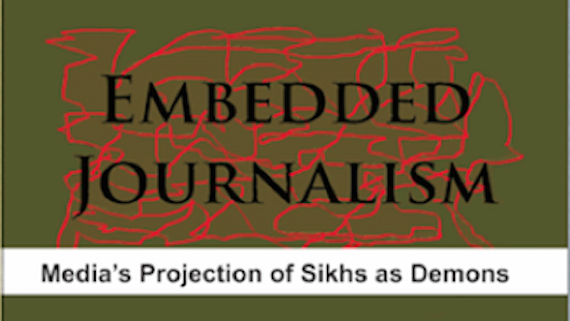
Media, Indian State and Anti-Sikh Violence (1980s): Review of book Embedded Journalism
Since Independence the alienation of a large section of Sikhs had been on the rise from the Indian state, which, in their perceptions, was “majoritarian Hindu” in character. One of the main reasons for this was the nature of Indian federalism, which remains biased in favour of the centre.
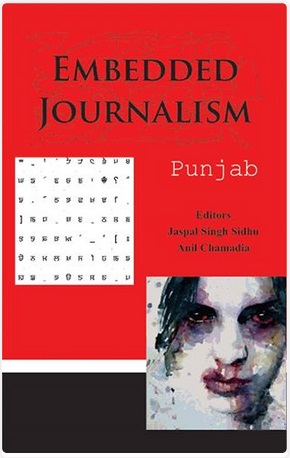
Indian Media’s Role during Sikh upsurge of 1980-90s in Punjab Questioned
Journalists and historians gathered to discuss latest book on the role of media during Sikh agitation observed that the policies that the ruling Congress Party at the Centre pursued in early 1980s had disastrous results in Punjab.
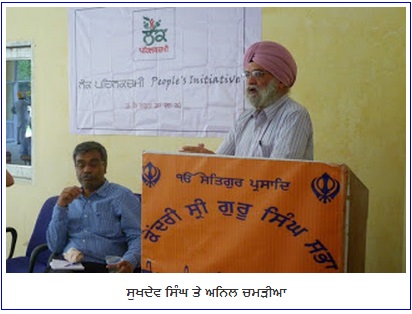
Book Embedded Journalism – Punjab released
On April 06, a debate was organized by People's Initiative on book titled: "Embedded Journalism - Punjab". The book "Embedded Journalism - Punjab" is edited by senior journalist Jaspal Singh Sidhu. It tells how the Indian media worked as a tool of Indian state in propagating against the Sikh political movement of 1980s -90s.
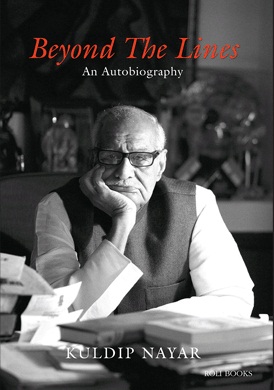
Kuldip Nayar fathered the genre of gossip journalism – He was first to experiment the practice of Embedded journalism: Harish Khare
Ludhiana (July 30, 2012): Harish Khare, a senior Indian journalist and former media advisor to the Prime Minister of India has made serious comments about Kuldip Nayar and his journalism. In a write-up titled: "Scoops, And Vanishing Cream" that has appeared in "Outlook" Magazine's current issue, Harish Khare says that "A great reporter, Nayar is also a regular flouter of objectivity, and a prime circulator of bogus, juicy gossip".

Rajoana hanging issue: Sikh bodies call masses to support peaceful shut down on 28 March
Amritsar, Punjab (March 26, 2012): Indian media is up in arms to create confusion among masses by publishing misleading reports about Punjab shut down call. Various prominent Indian newspapers are trying to mislead masses by wrongfully reporting that Joint Committee formed by various Panthic organizations has rejected the program announced Akal Takhat Sahib and March 28 Punjab bandh call is not supported by Akal Takhat Sahib.
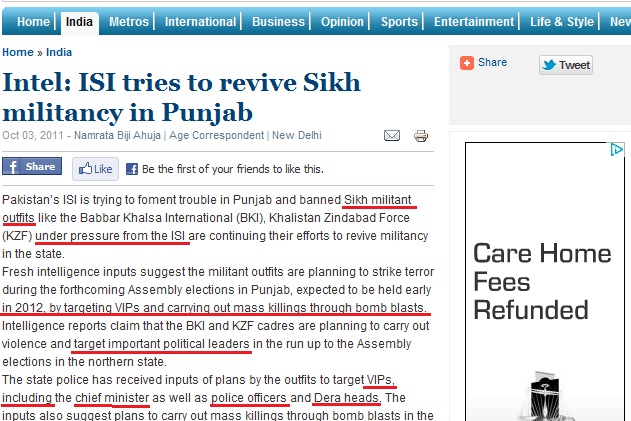
Media War against Sikhs – Indian media’s falsehood exposed once again
Amritsar, Punjab (January 30, 2012): Indian media was reporting since last two months that Pro-Khalistan Sikh leaders, allegedly hiding somewhere in Pakistan, were planning to trigger blasts to halt election process in Punjab.
Indian Media’s dis-information war against Sikhs
If Indian media want to hide facts like: Prof. Bhullar's conviction is based on fractured confession extracted through torture in police custody, and that statement of confession carried thumb impression and not the signatures, and that presiding judge of supreme court bench acquitted Prof Bhullar and said that statement of confession was bundle of lies framed by the police, and that Bhullar's family members were persecuted, subjected to enforced disappearance, torture and custodial killings, it can do so, because Indian media is free to not to report these things. But Indian media has not right to report false information. That's why I believe that Indian media had launched a disinformation war against the Sikhs.
« Previous Page








